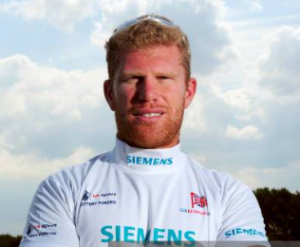As the sun sets on the rowing lake at the Paris Olympics, we talked to Matt Wells, four time Olympian, bronze-medal holder and junior coach at Avon County about his memories.
What is your overwhelming memory of competing at the Olympics?
Having competed at four Olympics I have distinct memories of each of them. Obviously with the Sydney Olympics being my first this is always the one for me with the massive wow factor! I remember the kitting out process was done in two stages. We were given a hold-all with travelling kit then when we got to Sydney we picked up all the proper kit. The rowing specific kit was made by a combination of JL and Adidas. The problem was the union flag that was embroidered on was all the right colours in very different locations. These were then sent back and a badge was sewn over the top.
When arriving at the infamous Olympic village we went through security which was like airport security with scanners etc. Once inside I remember the beds were 7 foot long which was nice so I didn’t get cold feet! The food tent was another huge wow factor – a massive tent which could seat 10,000 people at once and had every type of food ready for you from flapjacks to Yorkshire puddings.
Some of my best memories of all three Olympics is spending time chatting during the very early hours of the morning eating Mcdonald’s. Without name dropping this was a who’s who of international racing! Obviously the biggest memory is being on the medal rostrum in Beijing. It was a bitter sweet moment as we were in the silver medal position until the very last stroke – I was gutted not to have held on for that last stroke but that is sport.
How did you maintain your mental focus during the training process?
I have always focused on the goal and I would set myself smaller targets to achieve in order to get there. One of the hardest elements of an Olympic campaign is that it is over four years which is a long time. I had massive set backs where I had to refocus and take an alternative route. I had to be flexible in my preparations but without compromising the ultimate goal. Five months out from the first race in Beijing I had a severe back injury which I had to overcome.
In what ways has winning an Olympic medal impacted your life?
My experiences have obviously changed my life and I have had a lot of opportunities which have opened up to me which wouldn’t have otherwise. If anything being successful in rowing has taught me it is that I want others to share in the sport which I love and I hope that I can help them achieve their goals.
What advice would you give young rowers who dream of competing at the Olympics but may not have access to top-tier facilities or coaching?
I would say to enjoy the journey. Sounds corny but that really is what it’s all about. Now I have stepped back from the intensity of my career I can enjoy the fun moments which I went through like winding up other members of the team or competing to see who can order the most extra pillows for a certain coach.
There are bits of the sport which are hard really hard like the ergos you have to do or the sessions in the cold but try to enjoy one part of that whether it is competitive “no one else is doing it” or achieving the perfect stroke.
In terms of facilities, being at the top your sport doesn’t mean you always train in world class facilities. Every year we always did a work camp at altitude in the Austrian Tyrol where we used nylon ropes and lumps of metal as weights in a garage. We used to work as a team to put a 2000m buoy line out putting buoys every 15metres, changing at 250m and 500m for different colours. The experience always brought us back to why we were doing the sport.